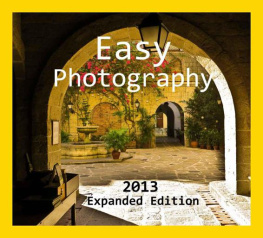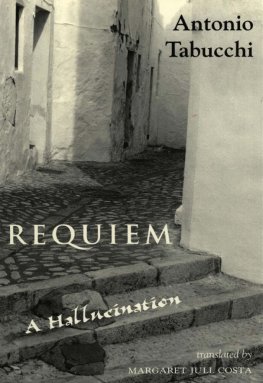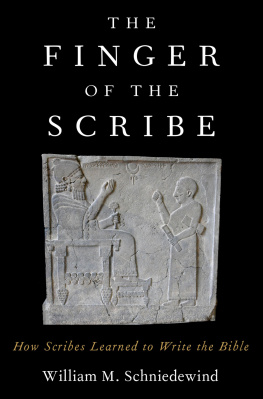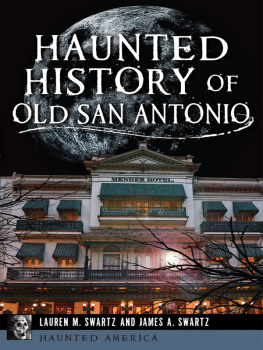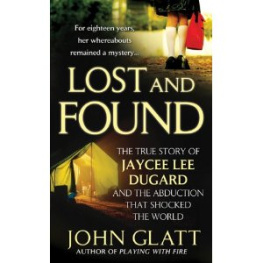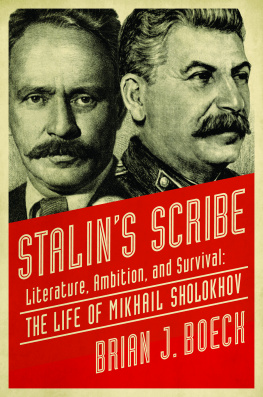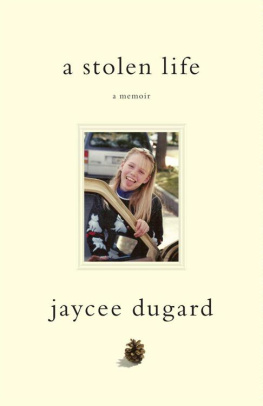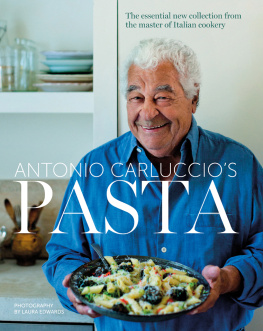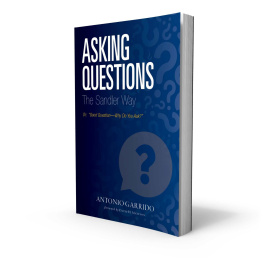Garrido, Antonio - The Scribe
Here you can read online Garrido, Antonio - The Scribe full text of the book (entire story) in english for free. Download pdf and epub, get meaning, cover and reviews about this ebook. year: 2013, publisher: AmazonCrossing, genre: History. Description of the work, (preface) as well as reviews are available. Best literature library LitArk.com created for fans of good reading and offers a wide selection of genres:
Romance novel
Science fiction
Adventure
Detective
Science
History
Home and family
Prose
Art
Politics
Computer
Non-fiction
Religion
Business
Children
Humor
Choose a favorite category and find really read worthwhile books. Enjoy immersion in the world of imagination, feel the emotions of the characters or learn something new for yourself, make an fascinating discovery.

The Scribe: summary, description and annotation
We offer to read an annotation, description, summary or preface (depends on what the author of the book "The Scribe" wrote himself). If you haven't found the necessary information about the book — write in the comments, we will try to find it.
Garrido, Antonio: author's other books
Who wrote The Scribe? Find out the surname, the name of the author of the book and a list of all author's works by series.
The Scribe — read online for free the complete book (whole text) full work
Below is the text of the book, divided by pages. System saving the place of the last page read, allows you to conveniently read the book "The Scribe" online for free, without having to search again every time where you left off. Put a bookmark, and you can go to the page where you finished reading at any time.
Font size:
Interval:
Bookmark:

Also by Antonio Garrido:
The Corpse Reader

The characters and events portrayed in this book are fictitious. Any similarity to real persons, living or dead, is coincidental and not intended by the author.
Text copyright 2011 Antonio Garrido
English translation copyright 2013 Simon Bruni
All rights reserved.
No part of this book may be reproduced, or stored in a retrieval system, or transmitted in any form or by any means, electronic, mechanical, photocopying, recording, or otherwise, without express written permission of the publisher.
The Scribe was first published in 2008 by Ediciones B as La Escriba. Translated from Spanish by Simon Bruni. Published in English by AmazonCrossing in 2013.
Published by AmazonCrossing
PO Box 400818
Las Vegas, NV 89140
ISBN-13: 978-1477848838
ISBN-10: 1477848835
Library of Congress Control Number: 2013911777
CONTENTS
Start Reading
I know not
1
2
3
4
5
6
7
8
9
10
11
12
13
14
15
16
17
18
19
20
21
22
23
24
25
26
27
28
29
30
31
32
EPILOGUE
AUTHORS NOTE
DEDICATIONS AND ACKNOWLEDGMENTS
ABOUT THE AUTHOR
ABOUT THE TRANSLATOR
Year of Our Lord 799.
Citadel of Wrzburg. Franconia.
And the Devil came to stay.
I know not why I write anymore: Theresa died yesterday, and I might join her soon. We have had nothing to eat today. What I bring from the scriptorium is barely enough. All is desolate. The city is dying.
Gorgias set his wax tablet on the ground and lay on the old bed. Before closing his eyes he prayed for his daughters soul. Then all he could think about were the terrible days leading up to the famine.
NOVEMBER
1
There was no sunrise in Wrzburg on All Saints Day. In the half-light of morning, farm workers started to emerge from their homes. Heading for the fields, they pointed at the grubby sky, swollen like the belly of a great cow. Dogs sniffed the coming storm and howled, but the men, women, and children continued their weary, silent parade like a soulless army. A whirl of dark clouds soon obscured the heavens as if heralding the end of the world. Then, such a torrent of water came that even the most hardened country folks trembled.
Theresas stepmother roused her from a deep sleep. The young girl listened in astonishment to the drumming of the hailstones threatening to bring down the wattle roof and immediately understood that she must hurry. In a blink, mother and daughter gathered up leftover bread and cheese from the table, wrapped a few clothes in an improvised bundle, andsecuring doors and windowsleft to join the desperate mob running for shelter in the high part of the city.
As they climbed the arched street, Theresa realized she had forgotten her wax tablets. You carry on, Mother. Ill be right back.
Ignoring Rutgardas shouting, Theresa disappeared into the crowd of peasants fleeing like sodden rats. Many of the streets had already turned to rivers cluttered with broken baskets, lumps of firewood, dead chickens, and soiled clothes. She negotiated the crowded tanners passageway by clambering over a cart jammed between two flooded houses, then she ran down the old street to the rear of her home, where she surprised an urchin trying to break in. She gave him a shove, butinstead of fleeingthe boy merely scampered off to another house where he had better luck climbing in through a window. Cursing him, Theresa went inside. From a chest she took her writing tools, her wax tablets, and an emerald-colored bible. She crossed herself, stashed everything under her cloak, and ran back as quickly as possible through the downpour to the place where her stepmother was waiting for her.
On the way to the cathedral, streets disappeared under the mire, and roofs flew off like dead leaves. Then, a great torrent of water engulfed the maze of hovels in the poor quarter, leaving a trail of devastation in its wake.
Over the next few days, wandering the streets of Wrzburg became a terrible nightmare. Townsfolk were constantly falling over in the quagmire, and they had to keep their distance from the collapsing buildings. But their prayers could not prevent the rain and blizzards from turning their fields into lakes.
Then the ice came: The Main River froze over, trapping the fishing skiffs, and the snowstorms blocked the passes that connected Wrzburg to the plains of Frankfurt, preventing supplies of food and goods from getting through. Frosts decimated the crops and ravaged the herds. Gradually, provisions ran out and hunger spread like wildfire. Some villagers sold their land off cheap, and nothing more was heard of the fools who had left the protection of the city walls to make for the woods. It was rumored that some, driven by desperation, commended themselves to God and hurled themselves into the ravines.
While the older folks shut themselves in their homes and waited for a miracle, the little ones, ignoring the warnings of their elders, continued to meet at the dunghills outside the walls to search for rats to roast. When they caught one, they celebrated with songs and cries of jubilation, parading down the main street with their quarry held up high.
After two weeks, dead bodies peppered the streets of the city. The more fortunate dead were buried in the small cemetery beside the timber structure of Saint Adelas Church, but volunteers soon gave up, letting bodies lie scattered like a plague along the watercourses. Some of the corpses swelled like toads, but usually the rats would devour them before then.
Many children had grown weak, and their mothers despaired as they searched in vain for something besides a little water to put on the table. The stench of dead bodies permeated the city, as did the mournful ringing of the cathedral bells.
Fortunately, Theresa still had work in the countships cathedral, where she had taken shelter the morning of the deluge. The cathedral had a meager yet steady need for workers. Laypeople worked in the diocesan workshops in return for a weekly ration of grain. The few women in service were there either to pleasure the men or toil in the kitchens. But Theresa had found work in the parchment-makers workshop, a job she had mixed feelings about. Yes, she had to suffer the crude stares of the leather workers, the comments about her breasts, and the men brushing past her with varying degrees of blatancy, but the reward for these annoyances came when, at the end of the day, she was left alone with the parchments. Then she would stack the pages that had arrived from the scriptoriumand instead of stitching the quinternions, she would enjoy a few moments to read. Theresa took compensation for her hard work from the tales told in the polyptychs and patristic texts. One day she knew her skills would be put to use for more than just baking cakes and washing pots.
Her father, Gorgias, plied his trade as a scribe at the episcopal scriptorium, close to the workshop where she worked as an apprentice. Theresa had assumed the position thanks to the misfortune of Ferrucio, the previous apprentice who had blighted his future in a moment of carelessness by severing the tendons in his hand. That was when her father put her forward to replace him. However, from the beginning, Kornethe master parchment-makeropposed her appointment on the basis of womens changeable natures, their inclination toward quarreling and gossip, their inability to bear heavy loads, and the frequency of their menstruation. All of this, in his view, was incompatible with a role that required wisdom and dexterity in equal measure. And yet Theresa could read and write fluently, a skill of unquestionable value in a place where there was too much muscle and not enough intellectual talent. It was thanks to her skill, and the intercession of the count, that she had been awarded the post.
Next pageFont size:
Interval:
Bookmark:
Similar books «The Scribe»
Look at similar books to The Scribe. We have selected literature similar in name and meaning in the hope of providing readers with more options to find new, interesting, not yet read works.
Discussion, reviews of the book The Scribe and just readers' own opinions. Leave your comments, write what you think about the work, its meaning or the main characters. Specify what exactly you liked and what you didn't like, and why you think so.

